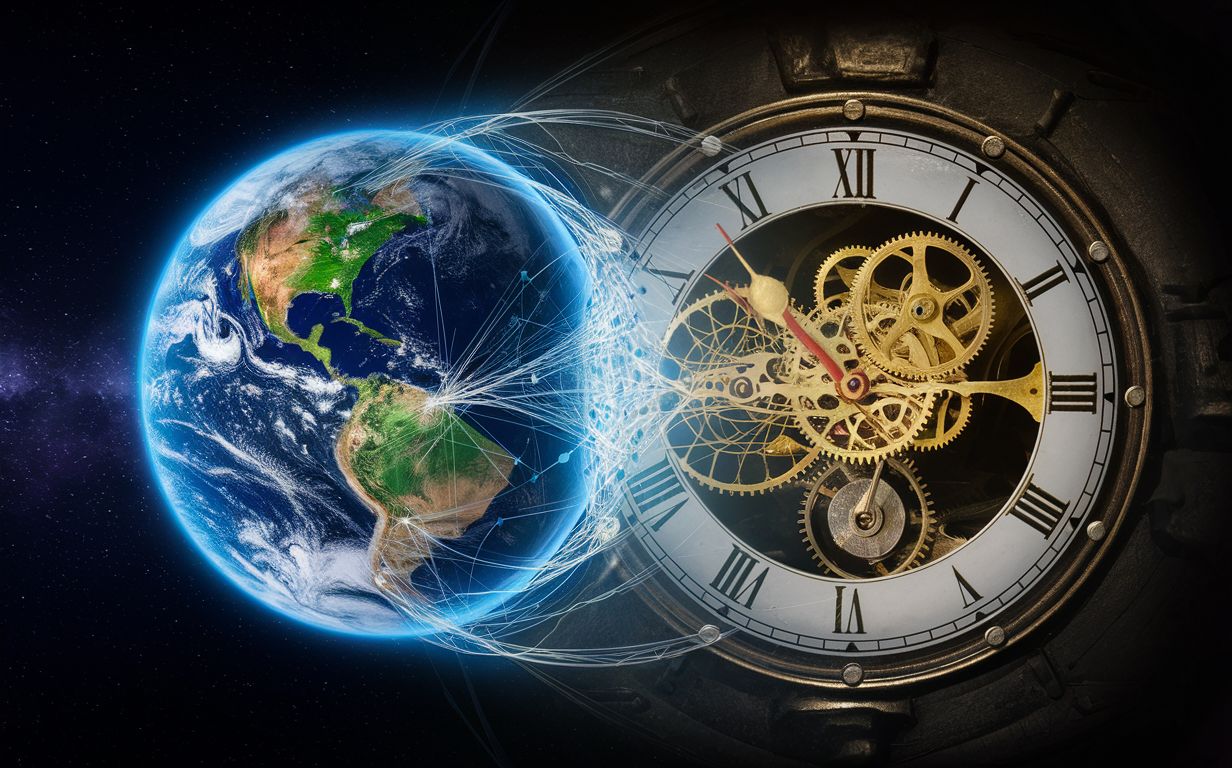The time: a quantum illusion?
Follow us on Google News (click on ☆)

Time, an elusive concept for physicists, complicates the quest for a "theory of everything" that can unify all the laws of physics. However, this new study, published in Physical Review A, suggests that time might emerge from quantum entanglement, a phenomenon connecting two distant particles.
In quantum systems, time appears immutable and external, unlike in Einstein's general relativity, where it can be warped by gravity and speed. This discrepancy impedes the unification of physical theories. To address this inconsistency, researchers revisited the Page and Wootters mechanism proposed in 1983, postulating that time emerges from the relationship between an object and another acting as a clock.
By applying this mechanism to two theoretical quantum states—a vibrating harmonic oscillator and a set of small magnets serving as a clock—the researchers found that their system could be described by the Schrödinger equation without explicit reference to time. They then repeated their calculations with macroscopic objects, simplifying their equations to those of classical physics, suggesting that the flow of time stems from entanglement even at large scales.
While this approach is mathematically sound, it urges caution among other physicists. The hypothesis remains challenging to test and has yet to yield verifiable experimental predictions. Nonetheless, some researchers believe that starting with quantum physics to understand classical physics is a promising direction.